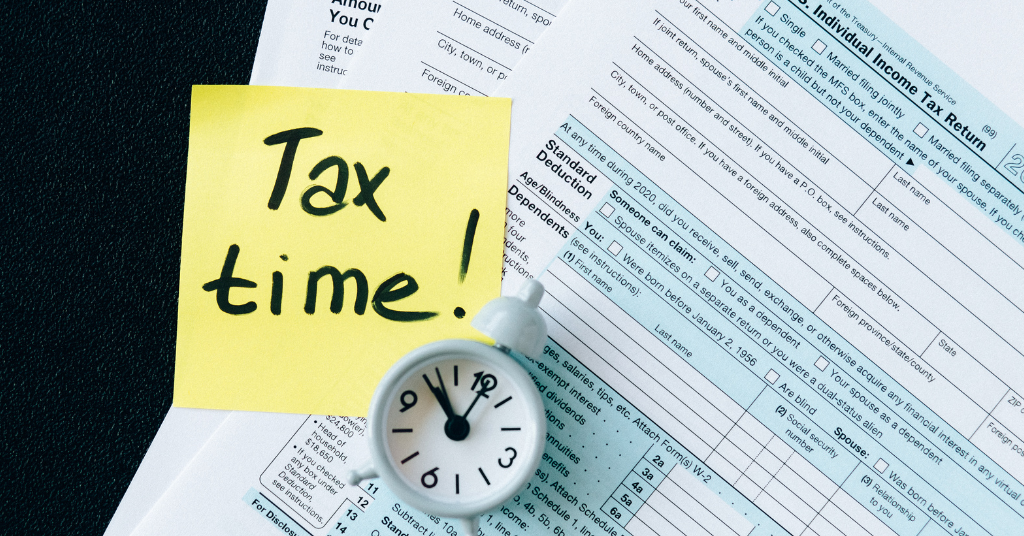

Maximize Your 2024 Refund: Tax Breaks You Might Be Missing
Category: Accounting
Buying and selling cryptocurrencies such as Bitcoin, Dogecoin and Ethereum is not for the faint-hearted. They are volatile, there is no justification for their valuation, and regulations have been slow to keep up. This creates a risky environment but also a huge tax loophole for cryptocurrency traders that is worth investigating.
The currencies fluctuate wildly in value – from July 2020 to April 2021, Bitcoin value increased about 600%. It then dropped more than 50% by the end of May 2021. This has led to a significant amount of paper and realized gains and losses.
There is a general belief that cryptocurrencies exist outside of the regulatory system. But, as I discussed in this post, gains and losses in cryptocurrencies do lead to tax consequences.
Whether your exchange (or wallet) reports your profits or not, you are liable and do have to pay tax.
However this means that you can also take advantage of tax losses of offset your gains. This is where regulation hasn’t caught up with cryptocurriencies, which has created a huge tax loophole. You may want to take advantage of if you have losses in the crypto currency losses.
At the time that I write this, you can sell your cryptocurrency, quickly rebuy it at a similar price and claim the loss on your taxes.
Disclaimer: Before taking any action based on this post, check the regulations. As I write this, the loophole is available, but this could change unexpectedly, and I may not be able to update this post immediately. Connect with us to get the latest.
Below I describe how cryptocurrencies differ from regular securities, explain the tax loophole, and provide some caveats that you should read before you take any action.


Even though people talk about investing in cryptocurrency as if it were similar to investing in securities (stocks), the regulations governing these transactions do not agree.
Current regulations (at the time of writing) consider cryptocurrencies property rather than securities. This difference is huge and creates a loophole for cryptocurrency traders when selling at a loss.
You can sell your cryptocurrency for a loss, use that loss to reduce or eliminate capital gains tax (and, to a limited extent, income tax). Then you can quickly rebuy the currency so that you do not miss out on any price rebound.
Selling investments for a loss is a known strategy that is available to any securities trader/investor. The practice is known as Tax Loss Harvesting.
However, in the securities world, there are limits on rebuying the same or similar security.
If you rebuy the same or very similar security within 30 days, this is considered a Wash Sale. In the case of a Wash Sale, you lose the tax-reducing benefit of the loss.
Since cryptocurrencies are property and not securities, the Wash Sale rules do not apply.
Say you bought bitcoin at the April 2021 peak of $65,000 and are sitting with it at a value of $30,000. You have a $35,000 loss.
Assume you also have a $35,000 capital gain in a mutual fund you sold.
You can sell your Bitcoin to realize the $35,000 loss, effectively eliminate your mutual fund gain, and eliminate your mutual fund capital gain taxes.
Then you can rebuy Bitcoin and benefit from any rebound in currency value.
There is currently no limit to how often you can do this. So, cryptocurrency volatility means that there are continuous opportunities to take losses even as you stay invested for long-term gains.
Take, for example, these substantial one-day drops in Bitcoin value:


These drops happened even as long-term Bitcoin value increased. So, on any of these days, you could have traded out of the currency, realized significant losses, and rebought to get the gain. This is a huge tax loophole for cryptocurrency traders.
Important note: you can only get this benefit if you are trading the cryptocurrency itself. Buying a cryptocurrency-related security, such as Coinbase or a cryptocurrency ETF of some sort, is considered an investment in a security and is therefore subject to the wash sale rules.
First and foremost: we think you should be careful considering any cryptocurrency an investment.
Cryptocurrency “investing” is more akin to gambling than investing. Cryptocurrency may increase or decrease in value over the long term. It isn’t government-backed or supported, and there are no underlying assets. The most prominent use of cryptocurrency at the moment is anonymous payment to hackers and illegal transactions. This seems bound to attract some regulatory interest at some point.
Secondly, you should expect regulators to crack down on the Wash Sale rules and regulate this huge tax loophole for Bitcoin traders in the future.
Even with property transactions, the IRS wants trades to have “economic substance,” or the IRS may consider them sham transactions. The IRS wants an investor to bear some economic risk to consider the sale legitimate.
This means that if you sell Bitcoin and then repurchase it a second later, the IRS may negate the tax benefit.
However, the timing isn’t defined or clear. A delay of one second is probably too short. A delay of a day seems very defendable. But what about a minute or 10 minutes? Nobody knows. Waiting a couple of minutes may be plenty of time, or the IRS may roll their collective eyes and say no.
The IRS and SEC will almost certainly take a look at this timing and the Wash Sale rules as they apply to cryptocurrencies, but we don’t know when.
So, the loophole exists today. But, it may not exist tomorrow, and the IRS may start scrutinizing these transactions more carefully immediately.
But if you are buying and selling cryptocurrencies you do not have a faint heart and are no stranger to risk. There is a lot of uncertainty in the cryptocurrency world: it is the Wild West of investing.
If you are a client and would like to book a consultation, call us at +1 (212) 382-3939 or contact us here to set up a time.
If you aren’t a client, why not? We can take care of your accounting, bookkeeping, tax, and CFO needs so that you don’t have to worry about any of them. Interested? Contact us here to set up a no-obligation consultation.
Interested in receiving updates in your mailbox? Check out our newsletter, full of information you can use. It comes out once every two weeks and you can register for it here:


Category: Accounting


Category: Accounting


Category: Accounting
Send us a message and we will contact you as soon as possible.
Jeff Coyle, CPA, Partner of Rosenberg Chesnov, has been with the firm since 2015. He joined the firm after 20 years of business and accounting experience where he learned the value of accurate reporting, using financial information as a basis for good business decisions and the importance of accounting for management.
He is a diligent financial professional, able to manage the details and turn them into relevant business leading information. He has a strong financial background in construction, technology, consulting services and risk management. He also knows what it takes to create organizations having built teams, grown companies and designed processes for financial analysis and reporting.
His business experience includes:
Creating and preparing financial reporting, budgeting and forecasting.
Planning and preparation of GAAP and other basis financial statements.
Providing insight on financial results and providing advice based on those results.
Jeff also has a long history of helping individuals manage their taxes and plan their finances including:
Income tax planning and strategy.
Filing quarterly and annual taxes.
Audit support.
General financial and planning advice.
Prior to joining the firm in 2015, Jeff was in the private sector where he held senior financial and management positions including Controller and Chief Financial Officer. He has experience across industries, including construction, technology and professional services which gives him a deep understanding of business.
Jeff graduated from Montclair State University, he is a CPA and member of the American Institute of Certified Public Accountants, New York State Society of Certified Public Accountants and New Jersey State Society of Public Accountants.
Jody H. Chesnov, CPA, Managing Partner of Rosenberg Chesnov, has been with the firm since 2004. After a career of public accounting and general management, Jody knows the value of good financials. Clarity, decision making, and strategy all start with the facts – Jody has been revealing the facts and turning them into good business results for more than three decades.
He takes a pragmatic approach to accounting, finance and business. His work has supported many companies on their path to growth, including helping them find investors, manage scaling and overcome hurdles. His experience and passion for business reach beyond accounting and he helps businesses focus on what the numbers mean organizationally, operationally and financially.
He has a particular expertise in early-stage growth companies. His strengths lie in cutting through the noise to come up with useful, out of the box, solutions that support clients in building their businesses and realizing their larger visions.
Prior to joining the firm in 2004, Jody was in the private sector where he held senior financial and management positions including General Manager, Chief Financial Officer and Controller. He has experience across industries, which gives him a deep understanding of business.
Jody graduated with a BBA in Accounting from Baruch College, he is a CPA and member of the American Institute of Certified Public Accountants and New York State Society of Certified Public Accountants.
In addition to delivering above and beyond accounting results, Jody is a member of the NYSCPA’s Emerging Tech Entrepreneurial Committee (ETEC), Private Equity and Venture Capital Committee and Family Office Committee.
He is an angel investor through the Westchester Angels, and has served as an advisor for many startup companies and as a mentor through the Founders Institute.